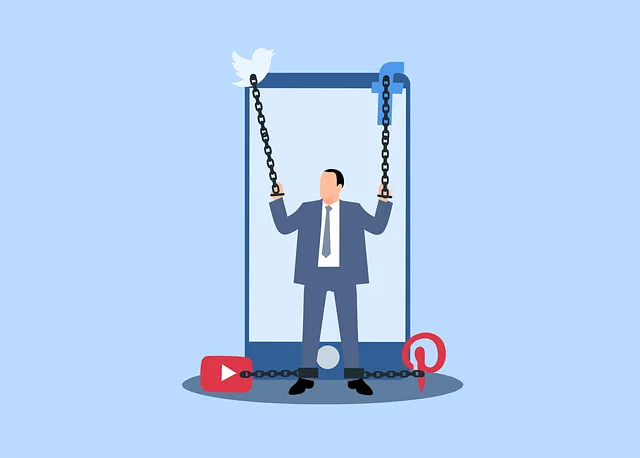Kaiser's inpatient mental health facilities in Centennial face challenges like patient self-harm, violence, staff burnout, and ethical dilemmas. To mitigate these risks, they need specialized support and Mental Health Education Programs Design. A comprehensive risk management plan is crucial, addressing unique dangers such as medication changes and emotional intensity through evidence-based practices, regular assessments, staff training, and clear communication. This ensures patient safety, promotes healing, and protects staff well-being.
“In the realm of mental healthcare, effective risk management is paramount to ensuring patient safety and well-being. This article explores essential strategies for professionals navigating complex challenges within this field. We delve into ‘Understanding Risk Management in Mental Health Care’ and examine the unique approach of Kaiser’s inpatient services in Centennial. By identifying common risks, from patient self-harm to staff burnout, we provide a comprehensive guide to developing robust risk management plans. Additionally, discover practical strategies for mitigating these risks in clinical practice, offering valuable insights for mental health professionals.”
- Understanding Risk Management in Mental Health Care
- The Kaiser Approach to Inpatient Services in Centennial
- Common Risks and Challenges Faced by Mental Health Professionals
- Developing a Comprehensive Risk Management Plan
- Strategies for Mitigating Risks in Clinical Practice
Understanding Risk Management in Mental Health Care

In the realm of mental health care, risk management is a vital component that ensures the safety and well-being of both patients and professionals. For organizations like Kaiser, especially with inpatient facilities such as those in Centennial, effective risk management planning is crucial to mitigate potential hazards and promote a secure environment. This involves a comprehensive understanding of various risks associated with mental health treatment, including but not limited to patient self-harm, violence, or staff burnout. By implementing robust strategies, mental health professionals can navigate these challenges effectively.
Risk Management Planning for Mental Health Professionals incorporates Emotional Well-being Promotion Techniques and Crisis Intervention Guidance as essential tools. It requires a multi-faceted approach that includes policy development, staff training, and the implementation of protocols for handling crises. Regular reviews and updates ensure that the plans remain relevant and effective in addressing emerging risks. Such proactive measures not only safeguard individuals within the healthcare setting but also foster an environment conducive to healing and recovery.
The Kaiser Approach to Inpatient Services in Centennial

Kaiser’s approach to inpatient mental health services in Centennial is a noteworthy example of comprehensive care. They offer a specialized environment designed for individuals facing severe mental health challenges, focusing on both acute stabilization and long-term recovery. The program incorporates evidence-based practices tailored to meet the unique needs of each patient, emphasizing coping skills development and mental illness stigma reduction efforts.
With an attentive and experienced clinical team, Kaiser provides a supportive network aimed at helping patients regain stability and build resilience. Through structured therapies, education, and personalized treatment plans, they address not only immediate symptoms but also underlying factors contributing to depression prevention and overall well-being.
Common Risks and Challenges Faced by Mental Health Professionals

Mental health professionals, like those at Kaiser’s inpatient facilities in Centennial, often face unique challenges due to the sensitive nature of their work. Common risks include emotional burnout from constantly managing intense and complex cases. The demanding schedules and high-stress environments can lead to fatigue, making it crucial for these professionals to prioritize self-care through activities such as Mental Health Education Programs Design.
Another significant challenge is maintaining ethical boundaries while navigating personal emotional attachments to patients. The need for positive thinking and fostering emotional healing processes within the therapeutic environment requires professionals to stay updated on the latest research and approaches, ensuring they provide evidence-based care while remaining attentive to individual patient needs.
Developing a Comprehensive Risk Management Plan

Developing a Comprehensive Risk Management Plan is an essential step for mental health professionals, especially those working in inpatient settings like Kaiser’s Centennial location. This involves identifying potential risks and hazards unique to the environment and patient population served. For instance, at an inpatient facility, risks may include sudden changes in medication regimens, therapeutic interventions, or the emotional intensity experienced by patients during their stay. A robust plan addresses these challenges proactively.
Professionals should incorporate strategies tailored to manage these risks effectively. This could involve implementing evidence-based practices such as Mindfulness Meditation and Mental Wellness Coaching Programs Development to enhance patient coping mechanisms and Self-Esteem Improvement. Regular risk assessments, staff training, and clear communication protocols are crucial components of a comprehensive plan that ensures the safety and well-being of both patients and caregivers at facilities like Kaiser Centennial.
Strategies for Mitigating Risks in Clinical Practice

Mental health professionals face unique challenges that can lead to increased stress and potential risks in their clinical practice. To mitigate these risks effectively, several strategies can be implemented. One key approach is incorporating Emotional Well-being Promotion Techniques into daily routines. This includes self-care practices like regular exercise, mindfulness meditation, and setting clear boundaries between work and personal life. Such techniques foster resilience and prevent burnout.
Additionally, Healthcare Provider Cultural Competency Training plays a crucial role in navigating the diverse needs of patients. By understanding cultural nuances and implicit biases, mental health professionals can create safer and more inclusive environments. This training equips them with the skills to deliver culturally sensitive care, thereby enhancing patient trust and outcomes. Moreover, focusing on Stress Management through structured programs and support networks can significantly reduce professional risks.
Mental health professionals face unique risks in their daily practice, and proactive risk management planning is essential for maintaining a safe and healthy work environment. By learning from strategies like the Kaiser Approach used in Centennial’s inpatient services, professionals can develop comprehensive risk management plans tailored to their practices. Identifying common challenges, such as patient violence or self-harm, and implementing effective mitigation strategies, including staff training and robust safety protocols, are key steps towards creating a resilient and supportive clinical setting. When mental health providers prioritize risk management, they not only protect themselves but also enhance the quality of care they deliver to their patients.






